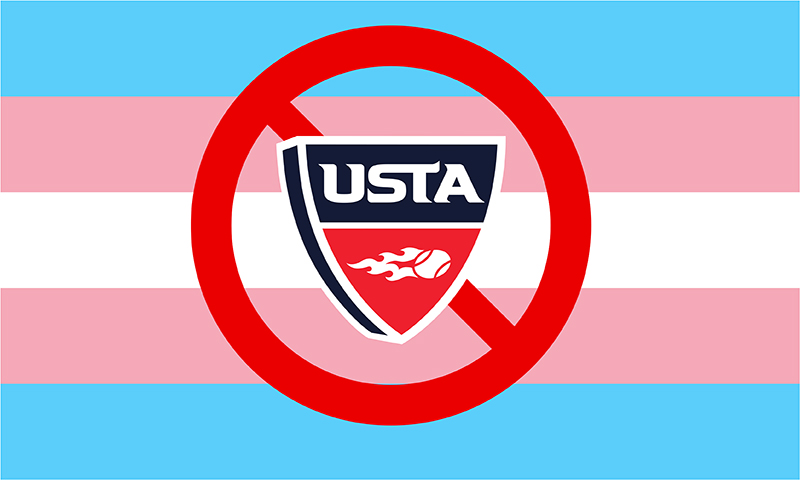Fairfax County School Board adds gender identity to nondiscrimination policy
Board members face down angry mob to pass protections for transgender individuals by 10-1 margin

Gordon Baer’s voice cracked slightly as he addressed the packed auditorium at Luther P. Jackson Middle School in suburban Falls Church.
“A hostile climate detracts from academic performance,” he said. “It’s an issue — not about bathrooms so much as it is about classrooms, and the quality of education that someone gets from Fairfax County Public Schools.”
The 2013 graduate of West Potomac High School and currently one of the co-chairs of the Gay, Lesbian and Straight Education Network of Northern Virginia was referring to the bullying he and other LGBT students had faced in high school.
“Fear detracts from a quality education,” he continued. “So I ask you to implement Policy 1450.”
As Baer spoke, the audience muttered and whispered, a few issuing muffled retorts. But Baer, undaunted, continued to urge the Fairfax County School Board (FCSB) to approve an update to its nondiscrimination missive, Policy 1450, by adding “gender identity” to a list of protected classes.
Previously, local governments in Virginia only had powers that had been specifically granted by the state’s General Assembly — a provision known as the Dillon Rule. In practice, that meant any pro-LGBT initiatives not approved by the General Assembly were considered void. But in March, Attorney General Mark Herring (D) issued an opinion claiming that the Dillon Rule only applies to local government bodies, such as the county board, while school boards have the authority to include sexual orientation and gender identity as protected classes.
Herring’s opinion prompted School Board Member Ryan McElveen (At-Large) to introduce the change to the FCPS nondiscrimination policy, last updated in November to include sexual orientation. The proposal passed 11-1, with Board Member Elizabeth Schultz (Springfield) voting against it.
On Thursday, Schultz not only opposed McElveen’s resolution, but offered a motion to postpone the vote on the policy until the second meeting in October. She argued this would allow for additional input from members of the community and talk of “substantive, critical issues” related to the implementation of such a revision to policy.
“Whether a class of students with gender-related issues may hurt individuals in the bathroom is not the issue before this board tonight,” Schultz said. “It is about the rights of 99.7 percent of all students, teachers and employees to retain their right to privacy, safety and dignity.”
Schultz raised concerns about the cost of implementation, claiming it would be “fiduciary malfeasance” for the board to undertake the policy without discussing costs. FCPS is expected to face an $8 million budget shortfall in fiscal year 2016, and a $100 million shortfall in 2017.
Schultz’s motion to postpone the vote was defeated.
Supporters of Policy 1450 countered that FCPS, under the leadership of Superintendent Karen Garza, already practices nondiscrimination with regard to transgender individuals, and that the addition of the words “gender identity” would not change current practice, but would merely put into writing the guarantee of said protections.
“There has been a tremendous amount of misinformation in the public,” said Board Member Megan McLaughlin (Braddock) as the audience tried to shout her down. “Every one of you who has come here tonight, I have not heard you say, that as of today, you are concerned about your children’s safety. As of today, those of you who have children in our public schools, have felt they are safe. They were safe today, they were safe yesterday, and they will be safe tomorrow.”
But the crowd was not placated. Audience members frequently interrupted the meeting, shouting criticisms and threats or booing speakers who supported the policy. Throughout the meeting, men dressed in business attire roamed the aisles, ushering opponents to “reserved” seats and seemingly making small hand signals to people in the audience. Moments later, after the men had moved on, that portion of the audience would invariably have an outburst, prompting further delays.
Five of 10 community members spoke in support of the policy, and another five spoke against it. Opponents frequently raised the issue of bathrooms and locker facilities, claiming that the policy would put young girls at risk of sexual assault. Still others alleged that, because there was no updated policy or handbook outlining how to implement the nondiscrimination provision, the board was essentially voting on a policy “without knowing what’s in it.”
“Has the board obtained objective evidence that the policy change can reach its intended outcome?” asked Jun Yuan, an FCPS parent who started an online petition opposing the update. “For example, is there data to show that the proposed policy will lower the suicide rate of transgender students? Could the result even show that suicide rates are higher due to more publicity, controversial or social stigma? If there’s no evidence the policy will work, again, we raise the question, what’s the rush for?”
Fredy Burgos, a Republican who previously ran for a seat in the House of Delegates in 2013, raised the issue of genital mutilation and higher rates of HIV among members of the transgender community, and even went so far as to call the policy “racist.” According to Burgos, black and Latino children do the bulk of learning outside the home and inside the classroom, and the effects of condoning gender nonconformity, and the students’ confusion over the issue, would make them uncomfortable, severely impacting school performance and leading to larger dropout rates among black and Latino children. Burgos went even further, labeling the policy “anti-black, anti-Latino” and “anti-Christian.”
The audience became particularly livid when Board Member Ted Velkoff argued in favor of the policy by quoting a passage from the Bible about the sheep and the goats. “And the King will answer them, ‘Truly, I say to you, as you did it to one of the least of these my brothers, you did it to me,’” he read. A number of audience members walked out in protest, while others shouted “Blasphemy!”
At one point, Schultz was able to calm the audience by telling them they owed it to themselves to listen to the board’s reasoning for passing the policy and reserve for a later date any response — meaning potential electoral consequences this November when the entire board is up for re-election.
The board eventually approved the policy by a 10-1 vote, with Schultz voting no and Patricia Reed (Providence) abstaining. As a large mass of opponents trickled out, several shouted, “Vote in November,” “Start looking for new jobs,” and “Disgusting.” Schultz left the still-in-session meeting to temporarily rally with some of the opponents outside the school, receiving hugs and praise for her efforts to block the policy.
Following the policy’s approval, which makes Fairfax the largest school system in Virginia and one of the largest in the nation to include protections for gender identity, Equality Virginia, the state’s LGBT rights group, issued a statement.
“Equality Virginia is pleased that the board took into consideration the opinion of both community members and experts, and voted to do the right thing,” said Executive Director James Parrish. “Like any other student, those who are transgender simply want to be accepted for who they are. Being stigmatized should not be part of any child’s growing up, and this updated policy ensures that Fairfax Public Schools will create an atmosphere of acceptance and respect.”
But an opponent of the policy, who gave his name as J.T., felt otherwise.
“Why was there not a deliberative process to allow more public input?” J.T. wondered. “This took a lot of people off guard. Very few people knew about it coming. It seems to have been part of an agenda to force [upon the school system]. Nobody’s saying that it could not go through, but why was there this imperious need to approve it tonight, without proper information?
“I’m wholeheartedly in favor of the policy,” said Elizabeth Cantrall, a bisexual former FCPS student and self-identified Christian. “If the policy’s in place, and nothing’s going to change, what’s wrong with adding the language in?
“A lot of people view gender as binary, as male or female, and there are a lot of people in between that spectrum,” said Cantrall. “And if we don’t address those people, then they do get left by the wayside.
“I was involved in GSA in high school,” she continued. “Part of what made me feel okay was that my school supported me and that I was protected, that I could have a girlfriend and not be discriminated against. And so if there’s someone who is male and feels like they are female, they should be granted the same respect I was.”
Support Metro Weekly’s Journalism
These are challenging times for news organizations. And yet it’s crucial we stay active and provide vital resources and information to both our local readers and the world. So won’t you please take a moment and consider supporting Metro Weekly with a membership? For as little as $5 a month, you can help ensure Metro Weekly magazine and MetroWeekly.com remain free, viable resources as we provide the best, most diverse, culturally-resonant LGBTQ coverage in both the D.C. region and around the world. Memberships come with exclusive perks and discounts, your own personal digital delivery of each week’s magazine (and an archive), access to our Member's Lounge when it launches this fall, and exclusive members-only items like Metro Weekly Membership Mugs and Tote Bags! Check out all our membership levels here and please join us today!




























You must be logged in to post a comment.